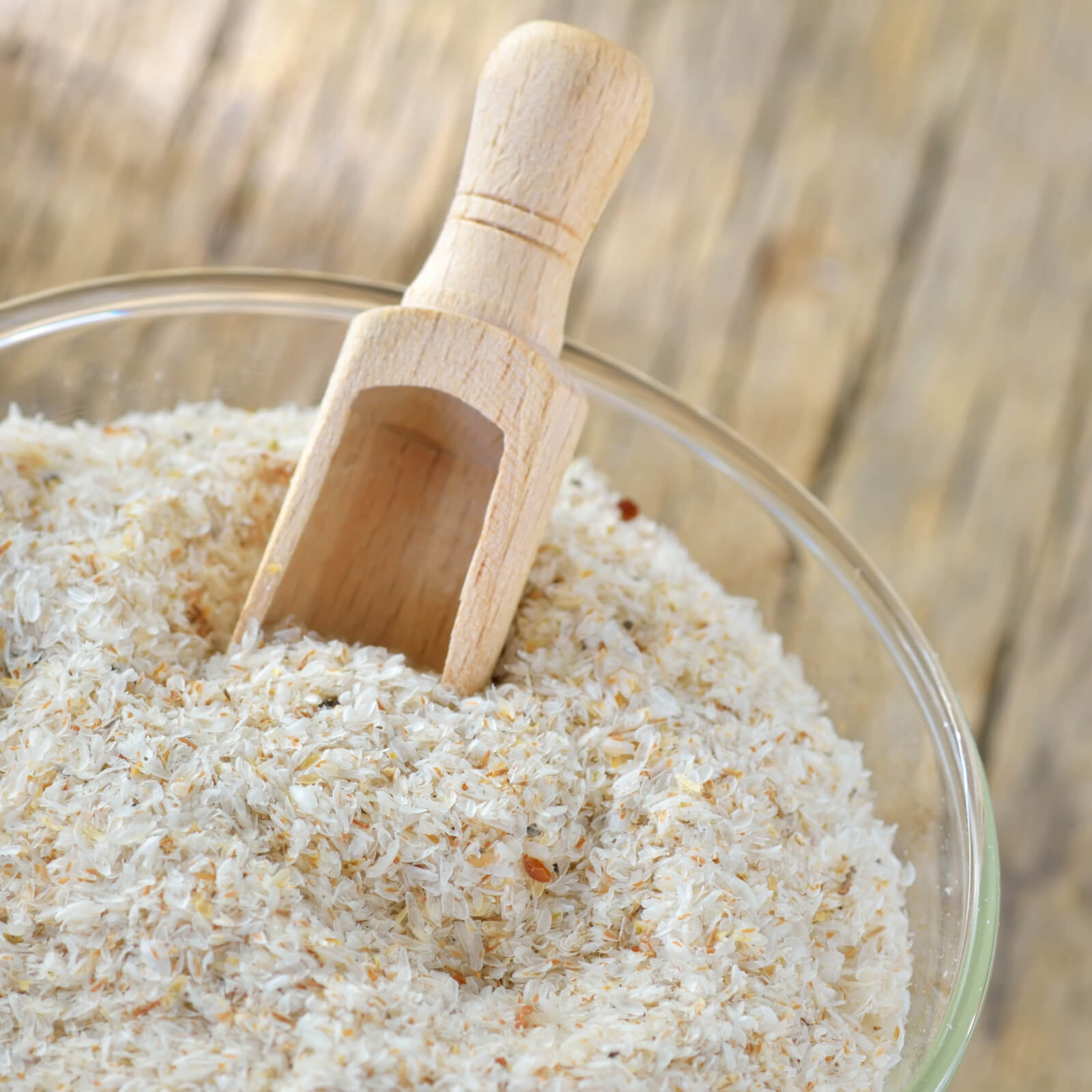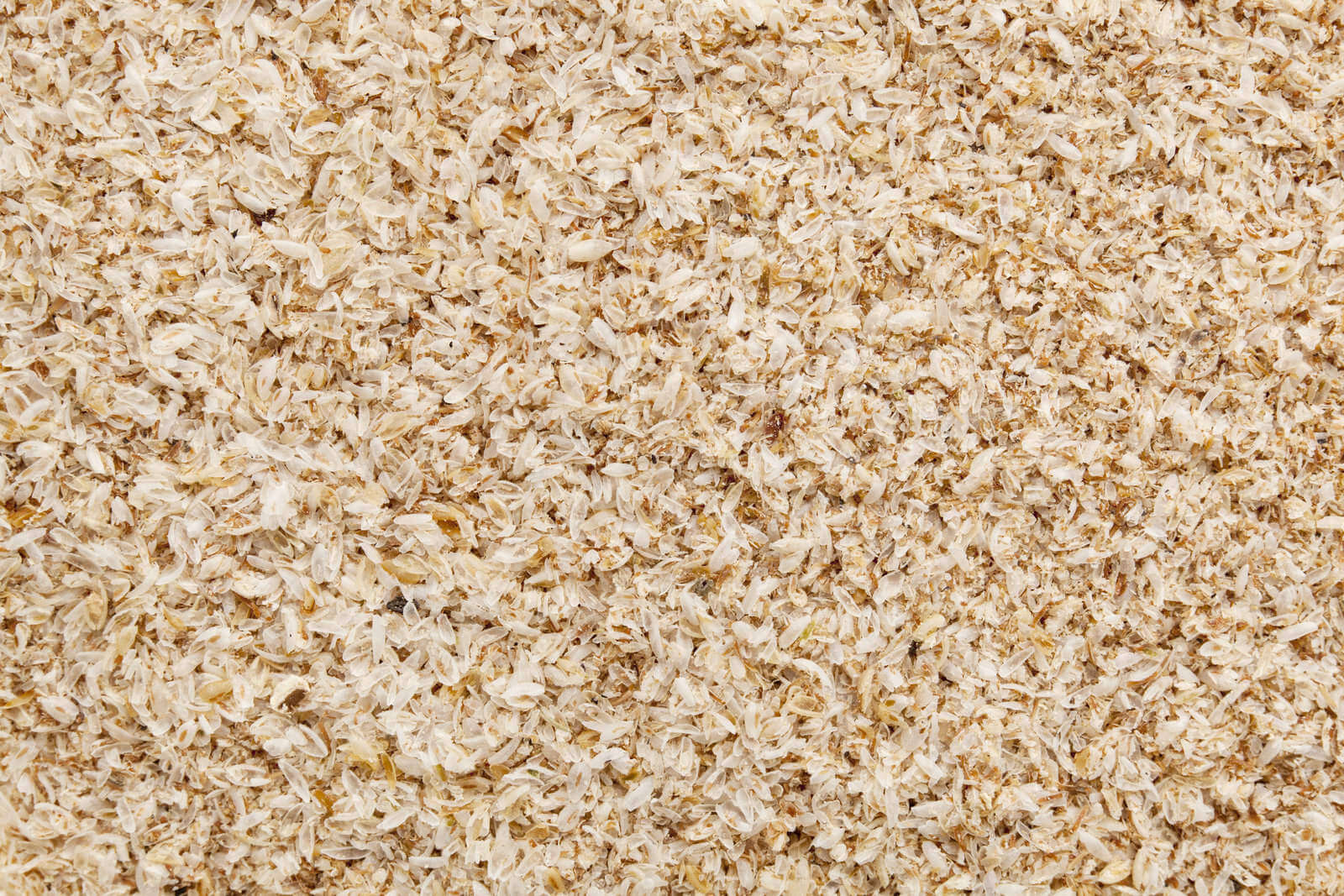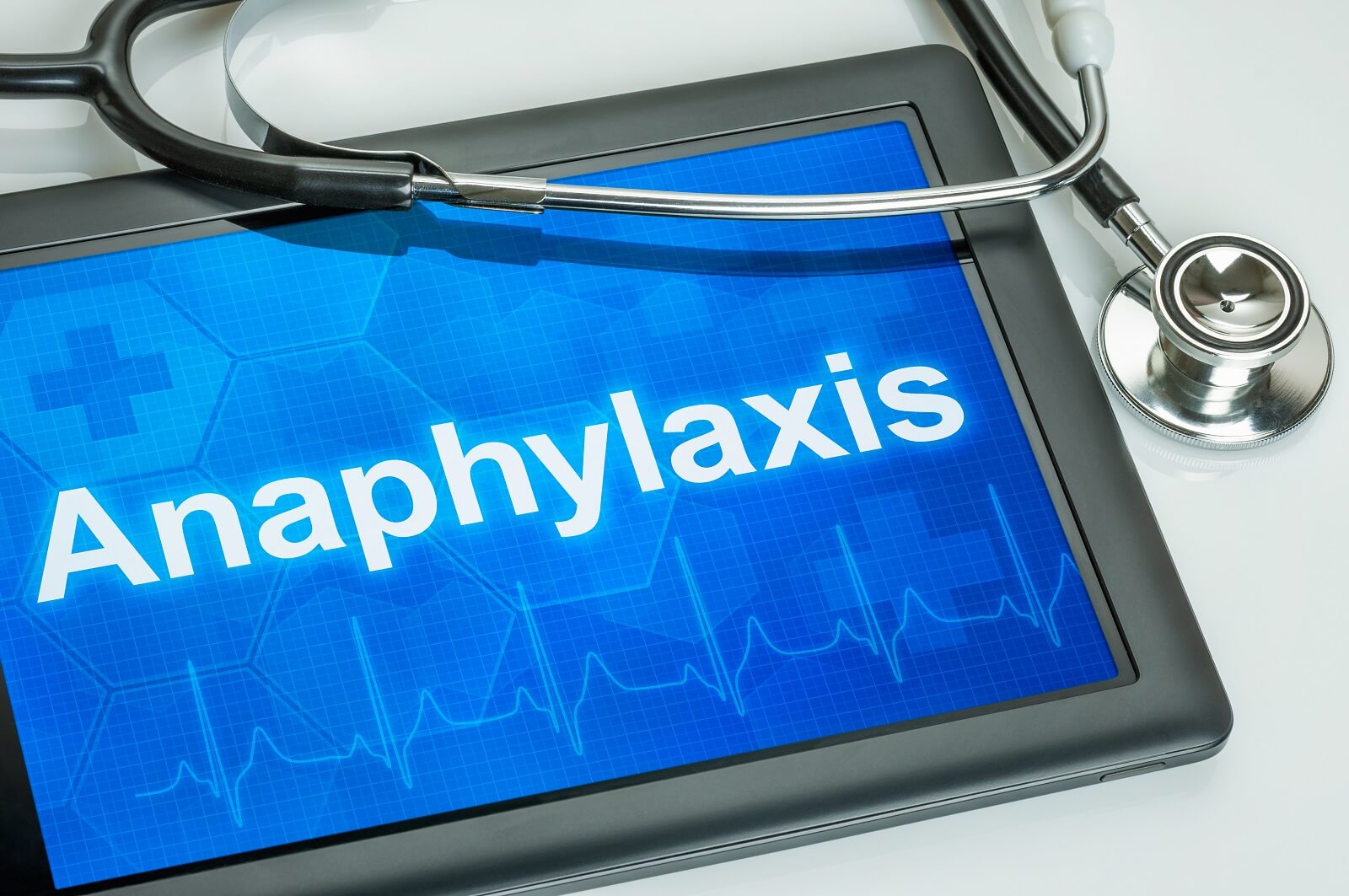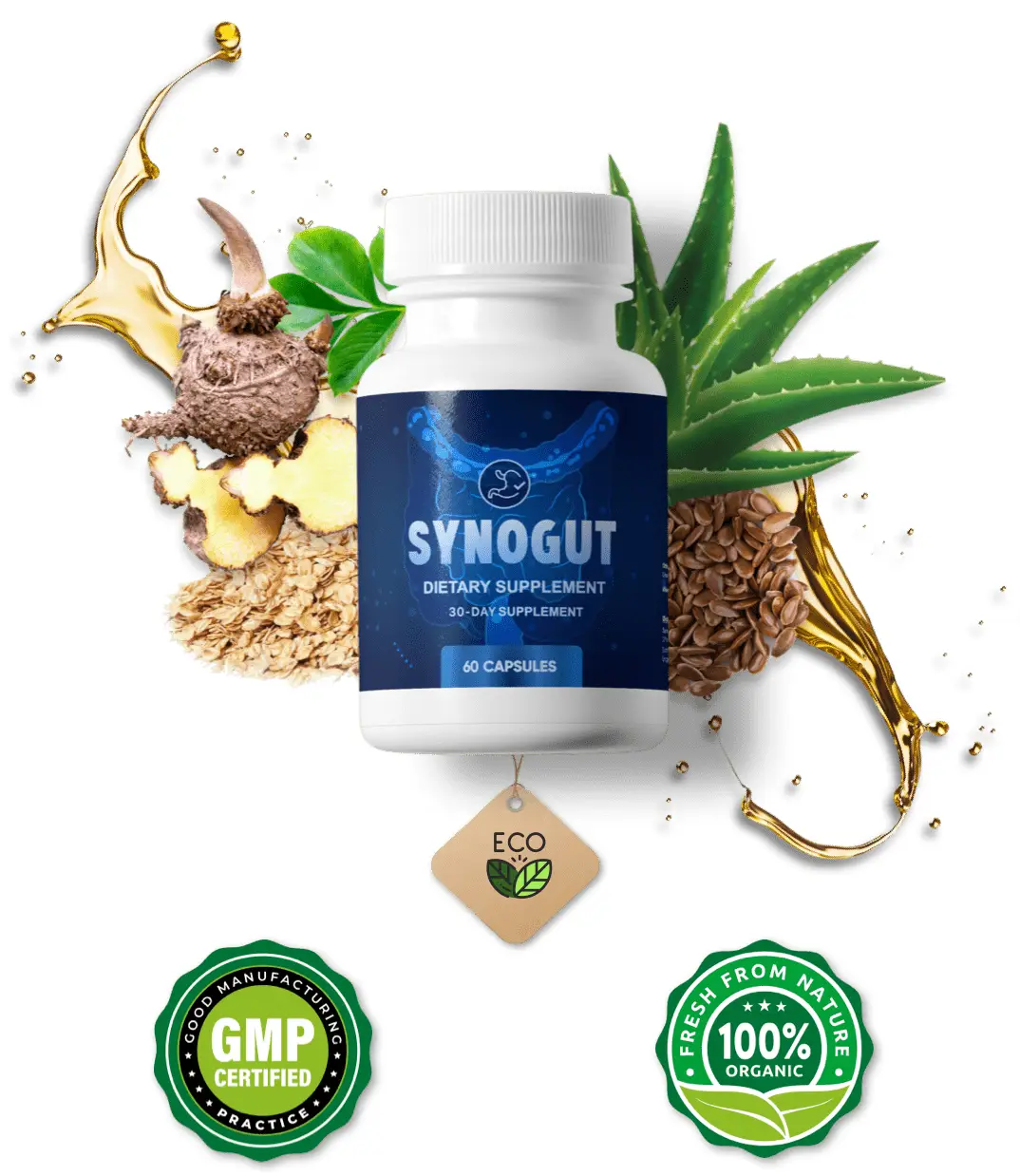
The seeds of psyllium (Plantago ovata), also called ispaghula, are very popular as bulk laxatives; e.g., Metamucil® is 100% natural psyllium fiber. Yet, it is also now used as an ingredient in foods, such as cereals and bakery items, to increase dietary fiber and to give various products viscosity and fluffiness.(source 9)
Although psyllium is generally well tolerated, these are the basic side effects psyllium to be aware of:(source 3)(source 1)
- Poor absorption of medication (when taken with psyllium)
- Should not be taken with any drug that slows intestinal motility
- Psyllium mucilage can necessitate a lower dose of insulin for diabetics
- More bowel movements
- Bloating
- Flatulence
- Feeling of Fullness
- Increased Thirst
In some rarer cases, psyllium does have the potential to cause an allergic reaction. Severe allergic reactions can even cause anaphylactic shock.
Some of the symptoms of an allergic reaction to this herb are:(source 7)
- Asthma
- Gastrointestinal symptoms
- Rhinoconjunctivitis
- Skin reactions
- Anaphylaxis
The late, and renowned, Dr. James A. Duke (find out more about Dr. Duke on the U.S. government’s USDA website) discusses psyllium in his book The Green Pharmacy Herbal Handbook.(source 1)
Dr. Duke gives this herb a safety rating of “safer than coffee.” Dr. Duke uses maybe the most common herbal treatment, coffee, as a benchmark for judging the many herbs he discusses in his book. According to Dr. Duke, this is a very safe herb, just make sure you drink a lot of fluids when you take it; otherwise you could become constipated—possibly even seriously so.
Maybe the most necessary precaution Dr. Duke lists is that you should not take it at the same time with medications. He says to separate the two by at least one hour. This is because psyllium can lower your absorption of the medication and reduce its effectiveness.
Psyllium Dosage Guidelines
Dr. Duke’s The Green Pharmacy Herbal Handbook(source 1) gives these dosage guidelines for psyllium:
- 2 tablespoons of psyllium husks / seeds in a glass of water each day
- 2 teaspoons of fresh seeds with water one or more times a day
- 1 teaspoon of fresh husks with water one or more times a day
- 1,695 mg to 2,260 mg of a powdered psyllium supplement 3 times a day
A 2001 study in The American Journal of Clinical Nutrition(source 3) conducted a study where participants took psyllium at a dose of 15 g a day for 30 days. Studies may have 15 g of psyllium a day as the upper dose that they use. It would probably be wise to consult a medical professional before you take anything over 15 g of psyllium a day.
Dr. John Herzog (MD)
Dr. John Herzog, a "survival surgeon" from Maine explains what home remedies work best in a crisis situation.
This may be important in the event you require first-aid or are in an emergency situation without easy access to a hospital. Dr. John Herzog has assembled a large collection of home remedies for such scenarios.

Psyllium’s Side Effects in the Literature

A 2020 systematic review in The Korean Journal of Internal Medicine(source 2) looked at 11 studies on psyllium which encompassed 592 participants. The average size of the participants in these studies ranged from 9 to 65 subjects. These trials administered psyllium between 4 weeks and 6 months at doses ranging from 3.7 g to 15 g.
Interestingly, this review did not find any reported side effects after psyllium supplementation in these 11 studies. This indicates that this herb is well tolerated.
A study published in 2001 in The American Journal of Clinical Nutrition(source 3) conducted research using psyllium and also documented side effects participants reported. In total, 68 participants were in the study. Those taking psyllium took 15 g a day for 30 days.
The participants self-reported side effects and rated them as follows: 1 = none, 2 = weak, 3 = moderate, and 4 = strong. The highest reported side effect for men taking psyllium was more bowel movements, with an average score of 2.67. Women reported the most severe side effect as increased bowel movements as well; with an average symptom score of 2.90.
The study summarizes these side effects by stating
As reported by participants, fiber intake resulted in more defecation, bloating, and fullness and a greater need for liquid intake... When compared with the men, premenopausal women experienced more bloating and a greater need for liquid intake during the fiber period.
The American Journal of Clinical Nutrition [74.4 (2001): 435-441]
Another 2010 study in Medical and Healthcare Textiles(source 4) discussed the side effects of psyllium. According to this paper, psyllium has no side effects on [the] human body.
A 2008 study in Phytomedicine(source 5) also looked at how psyllium would be tolerated in their research. A total of 68 participants were enrolled in the study and only 4 dropped out due to adverse side effects of psyllium. The study gave participants 3.5 g of psyllium 3 times a day; this was done for 3 weeks.
The study found that gastrointestinal symptoms reported by the participants were reduced after 3 weeks of taking psyllium husks as compared to the start of the study. Yet, evaluation of participant reports showed that only 3 of 54 of them had no symptoms in the first week of treatment. The number of symptom free participants rose to 11 by the 3rd week.
A quote taken from this study details the symptom outcome more in depth:
Adverse events considered related to study medication included 12 cases of flatulence, 11 cases of stomach pain, 8 incidents of bloating, 4 changes in bowel function, 2 incidents of nausea, one report of heartburn and one report of burping. Most symptoms disappeared after a few days but 4 persisted for the [course] of the study and 10 of 26 adverse events lasted longer than a week. No adverse events required additional treatment.
Phytomedicine [15.3 (2008): 153-159]
A 2022 study in Food & Function(source 6) did a pretty good job of summarizing the adverse effects of psyllium. The study’s authors stated: Psyllium is safe to use as a functional ingredient in food systems.
This study cited research involving 93 healthy participants that took 10.5 g of psyllium husk for 52 weeks. This research showed that this herb was well tolerated and that the majority of side effects that occurred were minor, short in duration, and only possibly related to taking psyllium husks.
Yet, this study did mention that there has been some research that showed that psyllium could possibly alter nutrition absorption and produce allergic reactions.
Concerning gas, this study reports that in vitro (in a test environment, not in a living organism) studies demonstrated that psyllium is able to be fermented. This led to wondering about the possibility of it causing gas in the intestines. Yet, research on this very topic was also conducted and showed that gel-forming psyllium does not get fermented in the human gut and does not produce excess gas.
The study states as a conclusion about the side effects of this herb: In summary, psyllium can be safely used in the run for numerous health benefits.
Claire Goodall’s Amazing Guide
Clair Goodall is a bee-obsessed, natural medicine convert from Minnesota (USA). And, she does keep bees!
Clair has created 350+ page book documenting how to replace the toxic products and medications in your home with healthier, all-natural alternatives.

Allergic Reactions to Psyllium

A 1992 report in the Canadian Medical Association Journal(source 7) stated that psyllium can cause hypersensitivity reactions (an extreme or unnecessary immune system reaction to an antigen [a foreign substance that evokes an immune system response] or allergen).
The symptoms of a hypersensitivity reaction to psyllium are stated as:
- Asthma
- Gastrointestinal symptoms
- Rhinoconjunctivitis
- Skin reactions
- Anaphylaxis
If you have a history of allergies, or are severely atopic (if you have a history of hypersensitivity reactions such as dermatitis or asthma) it would be wise to consult a medical doctor before you start taking psyllium. This could be a life saving decision on the off chance you end up being allergic to this herb!
Anaphylactic shock from psyllium is obviously rare, but a real potential occurrence. As many people are also allergic to peanuts, for example, some will be allergic to psyllium.
According to the American College of Allergy, Asthma & Immunology(source 8) website, anaphylaxis is defined as:
Anaphylaxis is a rare but severe allergic reaction. It can occur suddenly, can worsen quickly and can be deadly.
In most cases, people with allergies develop mild to moderate symptoms, such as watery eyes, a runny nose or a rash. But sometimes, exposure to an allergen can cause a life-threatening allergic reaction known as anaphylaxis. This severe reaction happens when an over-release of chemicals puts the person into shock. Allergies to food, insect stings, medications and latex are most frequently associated with anaphylaxis.
American College of Allergy, Asthma & Immunology (2023)
A case report about anaphylactic shock due to this herb was published in 2022 in Food and Nutrition Sciences.(source 9) The study states that most often allergic reaction cases occur as an occupational hazard with people handling psyllium powder laxatives. Yet, there are some cases of allergic reactions from eating products containing psyllium.
This case report is of a elderly person’s assistant who went into anaphylactic shock after eating a multigrain gluten-free piece of bread containing psyllium. This person had a positive allergy skin test for psyllium.
For this reason the case reports allergies stated: With this case, we would like to highlight the growing uses of psyllium, especially in bakery products, and that it can behave like a hidden allergen.
A Natural Digestive System Supplement that Helps

If you have been struggling with digestive problems like constipation, you should know about Samuel Bart. Mr. Bart lives with his wife, Alma, in Nashville, Tennessee.
Mr. Bart has always had a passion for plants and how to use them medicinally. He went on to research some of the most effective ways that could help people support a healthy digestive system.
To this end, Mr. Bart developed a product he calls “SynoGut.”
Every capsule of this supplement is made in the USA, in a FDA approved, and GMP certified, facility under sterile, strict, and precise standards. Synogut capsules are non-GMO. You can rest assured that they do not contain any dangerous stimulants or toxins, and more importantly, they are not habit forming.
His proprietary blend blend contains the following ingredients:
- Psyllium husk
- Bentonite clay
- Black walnut hull
- Oat bran
- Flaxseed
- Prune fruit
- Aloe vera leaf
- Lactobacillus acidophilus (a probiotic bacteria)
- Apple fruit pectin
- Glucomannan root
If this is not the first time you have had constipation, you might benefit from the power these natural items can provide. And, if you have had prolonged constipation, utilizing a supplement like Mr. Bart’s could help you become more regular—without an arsenal of prescription drugs.
Many people have tried synthetic drugs to solve their constipation issues; and if these didn’t work, it may be hard to invest in a natural remedy like SynoGut. To this end, Mr. Bart offers a 60 day, full refund guarantee on his supplement.
If you decide to invest in Mr. Bart’s supplement, and are not satisfied with the results, you can quickly request a refund. SynoGut will promptly refund your purchase; ensuring there is no risk to give Mr. Bart a chance.
SynoGut is sold via the large online retailer ClickBank—a company based in Boise Idaho, USA. ClickBank sells products across the world, and ensures you can get a refund if you are not satisfied with SynoGut’s results.
If you are in a situation where you have “tried everything,” SynoGut is worth the quick purchase and a solid test drive. If you would like to learn more about Samuel Bart’s SynoGut supplement, you can do so at the SynoGut website.
About the Author
Geoff Kent is a natural medicine enthusiast who has been researching and writing about natural medicine since 2008. Geoff is primarily a web developer, but also researches and authors written and video content about natural health. Geoff has a bachelor’s degree in Management Information Systems from the University of Northern Iowa.
More on Geoff KentImportant Disclosures & Disclaimers
It is important to use the information you find on Herbsey.com in the right way. Also for legal reasons, these disclaimers and disclosures are necessary. For further information about each, feel free to click the link provided to the page on this website that provides more information.
Medical Disclaimer
The information on this website is not a prescription for anyone. This information is for informational or educational purposes only, and is not a substitute for professional medical advice or consultations with healthcare professionals.
Advertisement Disclosure
Some of the links provided on this article and website are affiliate links. If you purchase a product after clicking on these links, Herbsey.com will earn a commission. Herbsey.com promotes various products through advertisement and text links. For more information: Our Advertisements.






